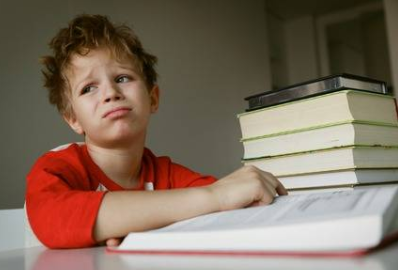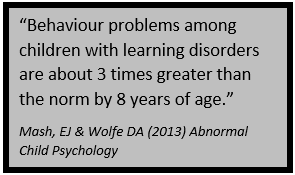Reading problems, poor behaviour & confidence – an interesting connection

The relationship between literacy and behaviour problems is a much-debated area. Which could be the cause and which is the effect? And how is confidence affected?
Literacy is fundamental to life. Without it, we wouldn’t be able to gain meaning from our world. This is why it is essential to continue fighting for great literacy, and reading, skills in our children.
Let’s look at some research that suggests a connection between literacy and behaviour (and how it impacts on student confidence).
Research Findings
“Research has demonstrated a strong positive correlation between behaviour problems and low academic achievement (Gest & Gest, 2005; Landrum, Tankersley, & Kauffman, 2003). Payne, Marks, and Bogan (2007) report “that behavioural and academic problems are reciprocal in nature”.
Simply put, behaviour problems can interfere with classroom engagement and, consequently, students can fail to master skills because of this lack of academic engagement. Classrooms with high performing students will be a place where there are low levels of behaviour issues.
Kids don’t generally come to school hating to be there (well mostly!). If students experience more failure than success, they often learn to hate school. This is a critical concern.
Another study by Mash and Wolfe (2013) showed that “younger children having difficulty in reading comprehension and literacy end up showing problematic behaviours in their future years“.
The connection becomes obvious when you visualise a child who is having difficulty in reading, comprehension or spelling becomes frustrated, unhappy and starts to act out.
Prevention
Disliking literacy/reading, combined with low self-belief, often triggers the ‘fight or flight’ response. The negative effect of poor reading skills only increases over time as older students become more aware of their performance compared with their peers.
Early literacy intervention is the best option. Yet sometimes awareness is the most beneficial too. If the focus is just on the behavioural patterns, then attitudes toward literacy can be overlooked.
Parents and educators who want to support the literacy achievements of young people should focus on connecting kids with engaging and relevant reading material. We need to help our young, poor readers to prevent them from becoming vulnerable to academic, behavioural and emotional issues.
Check out our blogs for more ideas and tips.
Boys Love LFB – Here’s what they have to say!
Get boys reading in the digital age
Why write? Tips for reluctant writers
Brought to you by Tanya Grambower
